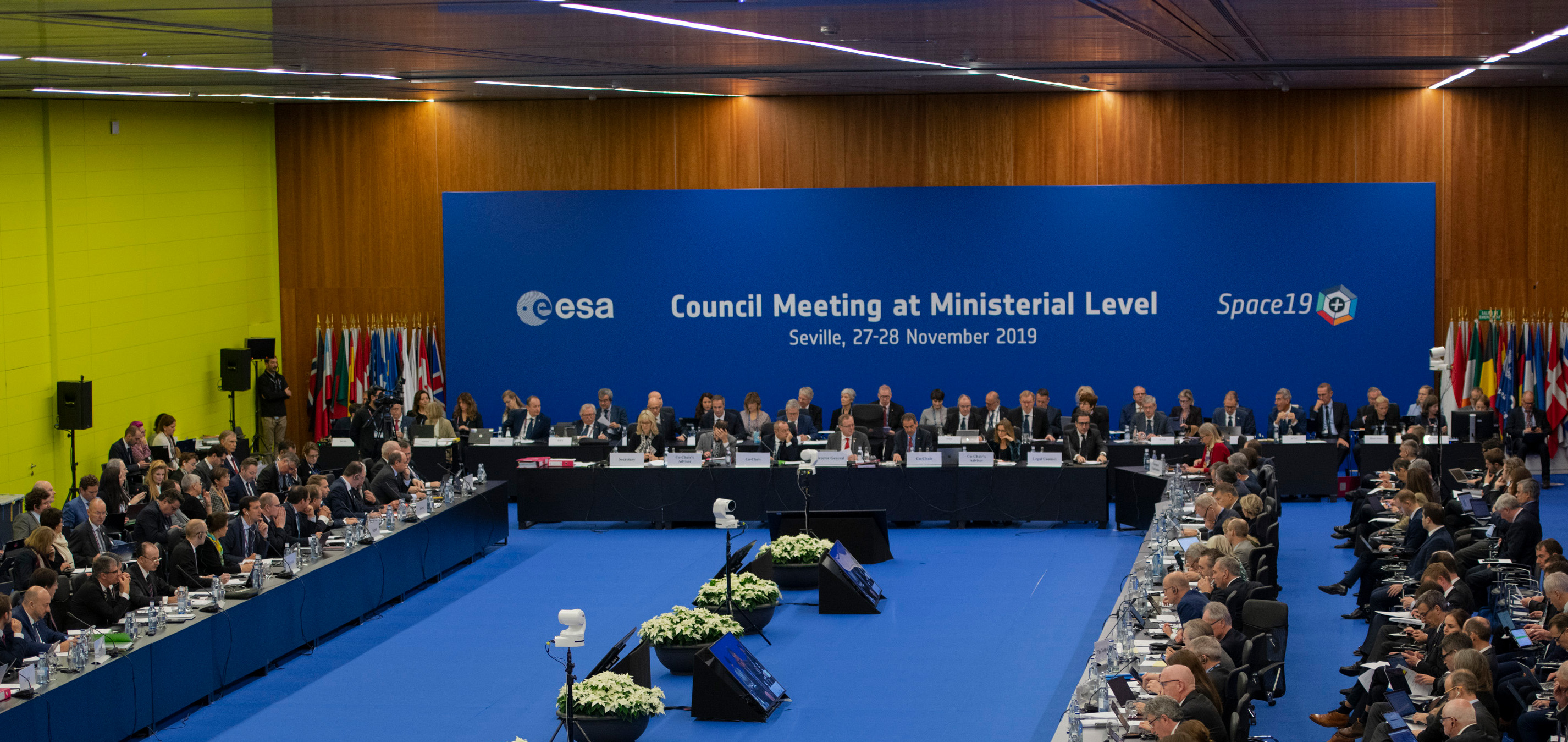ESA Gets Its Biggest Budget Ever, Supports Reusable Spaceship and ISS Extension
$15.9 billion (14.4 billion-euro) will support

Reusable spaceships and the International Space Station shine in the European Space Agency's (ESA) largest budget ever — $15.9 billion (14.4 billion-euro).
This past week (Nov. 27-28) in Seville, Spain, European ministers in charge of space activities along with participants from Canada and the European Union gathered for the ESA's Council at Ministerial Level, or Space19+, to allocate funding for the space science programs they have planned for the 2020s.
"Together we have put in place a structure that sees inspiration, competitiveness and responsibility underpin our actions for the coming years, with ESA and Europe going beyond our previous achievements with challenging new missions and targets for growth along with the wider industry," ESA Director General Jan Wörner said at the event, according to a statement.
Related: Debate Only Beginning Over Funding 2024 Return to the Moon
At the meeting, the ESA's 22 member states were asked to approve programs for the upcoming decade. Among the new programs is an initiative to fly LISA, the first space-based gravitational-wave detector, alongside the black-hole-mission Athena. Additionally, ESA green-lit a new reusable spaceship, confirmed support for a groundbreaking Mars mission and emphasized its continued commitment to the space station.
Regarding the space station, ESA committed to continuing its support until 2030. This includes continuing to contribute to transportation and habitation modules that will be used for NASA's Gateway, the planned space station that will orbit the moon.
Additionally, the member states confirmed support for a Mars sample-return mission that will be completed in collaboration with NASA. This initiative will include missions between 2020 and 2030 that will land on Mars, collect and store samples and then deliver those samples to Earth.
Get the Space.com Newsletter
Breaking space news, the latest updates on rocket launches, skywatching events and more!
ESA ministers also announced that they have given the go-ahead to Space Rider, the ESA's new reusable spaceship.
A few other highlights:
- NASA Chief Plays Down Costs of 2024 Moon Landing
- Will Private Companies Beat NASA to the Moon?
- Trump Proposes Extra $1.6 Billion for NASA's 2024 Return to Moon
Follow Chelsea Gohd on Twitter @chelsea_gohd. Follow us on Twitter @Spacedotcom and on Facebook.

Join our Space Forums to keep talking space on the latest missions, night sky and more! And if you have a news tip, correction or comment, let us know at: community@space.com.

Chelsea “Foxanne” Gohd joined Space.com in 2018 and is now a Senior Writer, writing about everything from climate change to planetary science and human spaceflight in both articles and on-camera in videos. With a degree in Public Health and biological sciences, Chelsea has written and worked for institutions including the American Museum of Natural History, Scientific American, Discover Magazine Blog, Astronomy Magazine and Live Science. When not writing, editing or filming something space-y, Chelsea "Foxanne" Gohd is writing music and performing as Foxanne, even launching a song to space in 2021 with Inspiration4. You can follow her on Twitter @chelsea_gohd and @foxannemusic.









